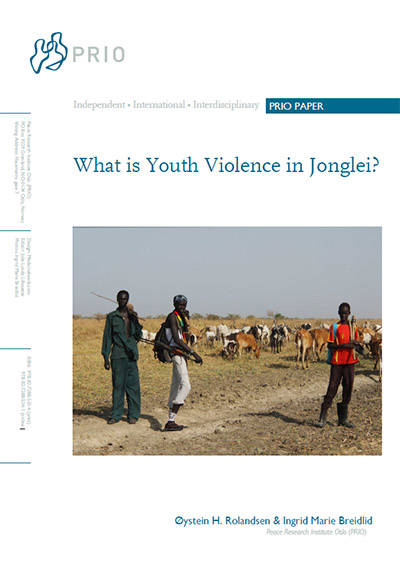Since the signing of the Comprehensive Peace Agreement of 2005 the state of Jonglei in South Sudan has experienced widespread local violence and insecurity. A generation of “youth in crisis” is perceived to be at the heart of the problem. Based on insights garnered from nearly 150 interviews in Jonglei (Twic East, Duk, Uror, Nyirol, Akobo and Bor) and Juba in the period October 2012 to April 2013, this PRIO Paper demonstrates that there is no “youth rebellion” in Jonglei. Instead, the civil war and subsequent violence has contributed towards expanding the very definition of youth. Currently perceptions of “youth” in Jonglei encompass most able bodied boys and men. Despite increased independence of “youth” vis-à-vis older generations, insecurity and intercommunal violence in Jonglei state have also promoted social cohesion within local communities.
Violence in Jonglei is closely linked to the prevailing security vacuum in rural areas and participation of “youth” in violence is a consequence of the political economy of civil war and large-scale violence, but also their social role and responsibilities as protectors of the community. As long as the state cannot adequately provide security and rule of law, youth in Jonglei will continue to arm themselves.
The report is an outcome of the PRIO research project Youth and Violence in South Sudan. Its findings are based on a multi-disciplinary methodology combining in-depth semi-structured interviews with analysis of a broad range of documentation and academic literature. The project is funded by the Norwegian Ministry of Foreign Affairs.









